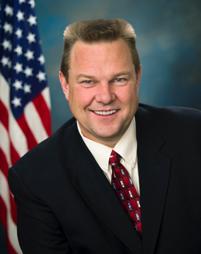How Many US Senators Will Join the 4-Timers Club?
Only one state has never elected a U.S. Senator elected to four terms

Among the 25 incumbents on the ballot in November are nine who are seeking to reach a milestone that, while not exceedingly unusual, has only been achieved by a small fraction of their colleagues and predecessors – win four direct elections to the chamber.
Since the dawn of the direct election era in 1913, there have been only 162 men and women to win at least four U.S. Senate elections.
That number could increase to 171 if six Democrats, two Republicans, and one independent are reelected this cycle:
- Democrats Jon Tester of Montana, Kirsten Gillibrand of New York, Sherrod Brown of Ohio, Bob Casey of Pennsylvania, Sheldon Whitehouse of Rhode Island, and DFLer Amy Klobuchar of Minnesota
- Republicans Roger Wicker of Mississippi and John Barrasso of Wyoming
- Independent Bernie Sanders of Vermont
West Virginia Democrat-turned-independent Joe Manchin opted against seeking a fourth term and is retiring from the chamber.
If successful, Casey would be the first Democrat and only the second senator from Pennsylvania to accomplish this feat.
Meanwhile, Sanders is looking to become the first independent to do so in U.S. history.
Every state has had at least one U.S. Senator win four elections with the exception of Colorado. Sitting Democrat Michael Bennet, Republicans Eugene Millikin and Gordon Allott, and Democrat Ed Johnson all won three races each.
In Pennsylvania, Republican Arlen Specter was the only candidate to win at least four direct elections to the chamber.
Voters in Indiana (Republican Dick Lugar), Ohio (Democrat John Glenn), and Tennessee (Democrat Kenneth McKellar) also have cast their ballots for the same U.S. Senate candidate in four special or general elections.
On the other end of the spectrum, six individuals from Rhode Island (Democrats Jack Reed, Theodore Green, Claiborne Pell, Peter Gerry, and John Pastore and Republican John Chafee) and Texas (Democrats Morris Sheppard, Tom Connally, Lloyd Bentsen and Republicans John Cornyn, John Tower, and Kay Bailey Hutchison) have all won at least four U.S. Senate elections.
The four-timers club is nice, but dozens have gone on to win more.
In fact, more than 40 U.S. Senators have won at least six terms in the direct election era. [Only four did so before the direct election era and one did so summing across both eras].
Follow Smart Politics on X/Twitter.

5 weeks left, remember to get everybody that you can reach out to VOTE up and down the ballot like your lives depend on it.
{Unrelated} A number of (other) milestones will be reached no matter which side wins the 2024 presidential election:
– “Tim” Walz might be the first *state governor of MN* to reach the vice presidency (a gaggle of other residents from the North Star State have stood for and even won either the presidency or vice presidency – only with a US Senate seat in their background. As well, that milestone would result in another milestone – that of the first Indigenous woman in the state (Lieutenant Governor Peggy Flanagan) being elevated to the governorship.
– Mr. J D Vance might be the first *resident of OH* to be elected to the office of vice president (his very recent VP debate performance signals that he is prioritizing his viability as a ’28 contender for president over the more immediate task of winning the ’24 election using slash-and-burn rhetorical pyrotechnics).
– Mr. D J Trump might be the first *convicted felon* (of multiple counts!) to be elected to the office of president (its powers even more augmented, in the wake of a controversial SCOTUS decision granting perniciously broad immunity to even a former occupant thereof).
“…4-Timers Club: Only one state has never *had* a four-term US senator” Michael Farrand Bennet is indeed the first ‘four-term senator’ from the Centennial State, since his initial partial term (appointed in 01 2009) is a *separate and distinct term* from subsequent elected terms (the other three mentioned in the text are 3-termers, including Eugene Donald Milliken; unlike Bennet decades later, he was still serving the unexpired portion of the term that began in 01 1939 – even after his win in the 1942 special election).
If Bennet wins in 2028, yes, he would be a winner of “4 elections” (and would become a *5-termer* even if he were to actually end up serving just a small portion of that term).
“Only ‘two’ did so (entirely) before the direct election era…”
– John Sherman (OH): 1861, 1866, 1872; 1881, 1886, 1892
– Justin Smith Morrill (VT): 1866, 1872, 1878, 1884, 1890, 1896
– HENRY MOORE TELLER (CO; 1 of inaugural senators): 1876, 1877; 1885, 1891, 1897, 1903
Curiously (and counterintuitively) no Democrat was elected six times prior to the commencement of the direct vote era – not even from the one-party Solid South.
Thanks – and actually there is a *fourth* to add to this list – Republican William Allison of Iowa. (Tally now edited above).
{Miscellany}
– “Ted” Stevens would have stood a good chance of winning re-election to the US Senate in 2014 – albeit as a former officeholder, and, upon a successful bid, a nominal freshman (he filed for the Class 2 seat after the federal charge was dismissed with prejudice; he died in a plane crash in 2010 – after having survived another crash in 1978).
– To the best of my knowledge, only Republicans Slade Gorton of WA, Henry Dworshak of ID, and John Sherman Cooper of KY managed to win re-election to the Senate after having won and then lost at least one direct election (each). Would outgoing Senator Sherrod Brown seek a return bid in 2026 (a by-election in OH)? Would he be willing to start over as a ‘freshman’ the way “Uncle Ted” had been (with a far greater loss of seniority, having served for 40+ years representing AK at time of narrow defeat) ?